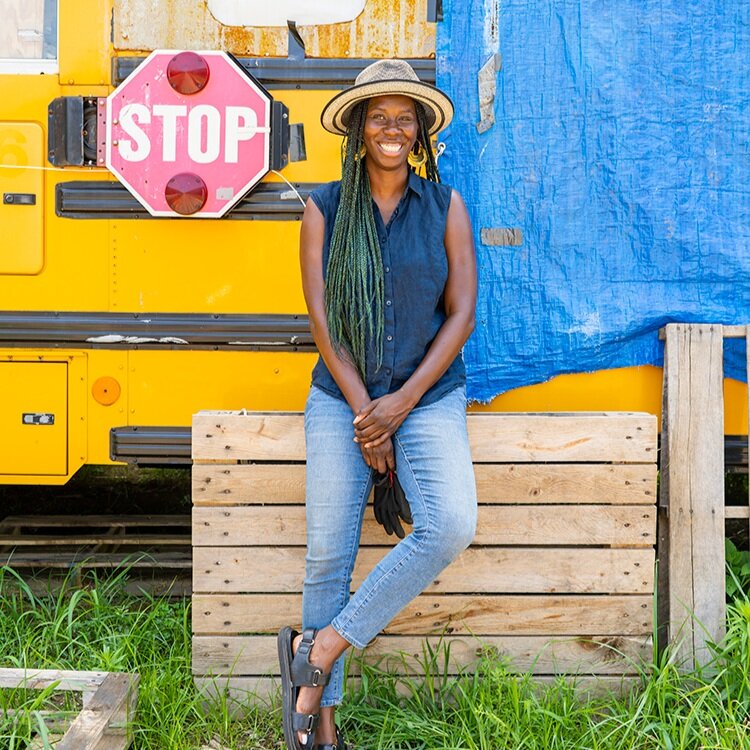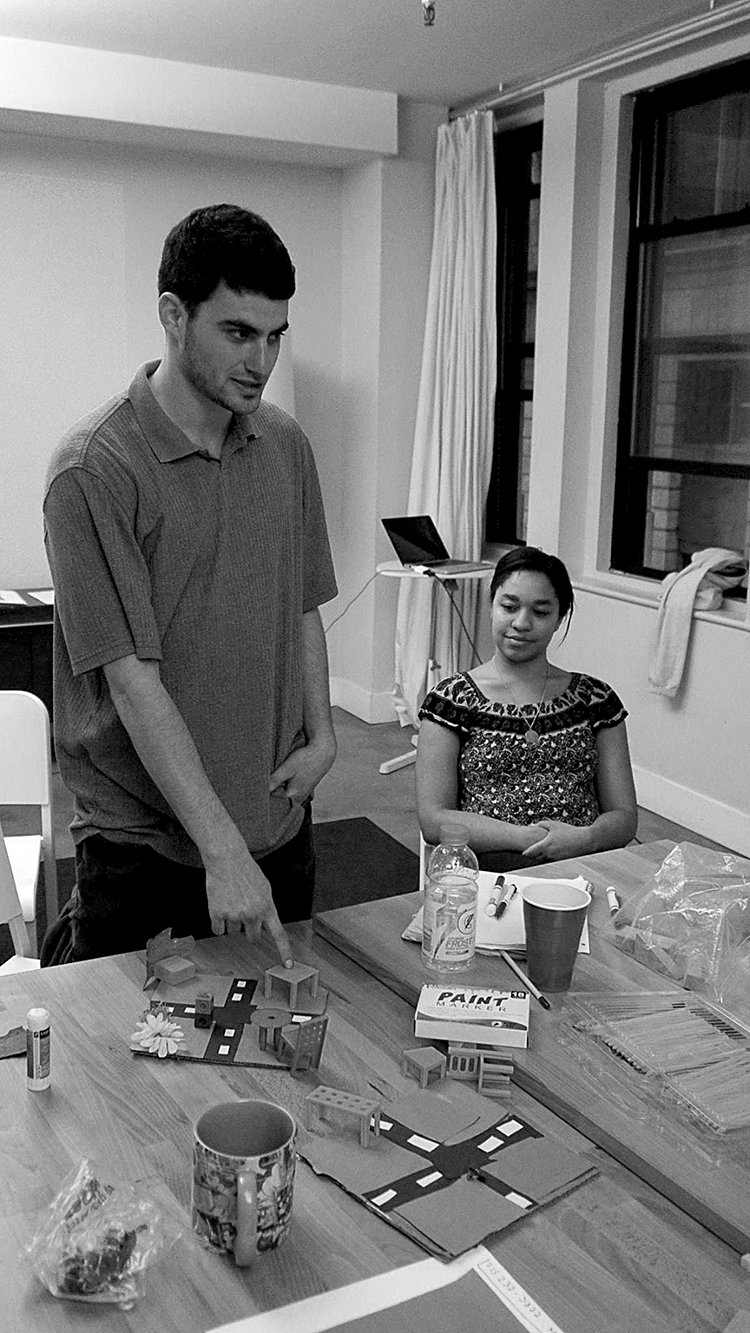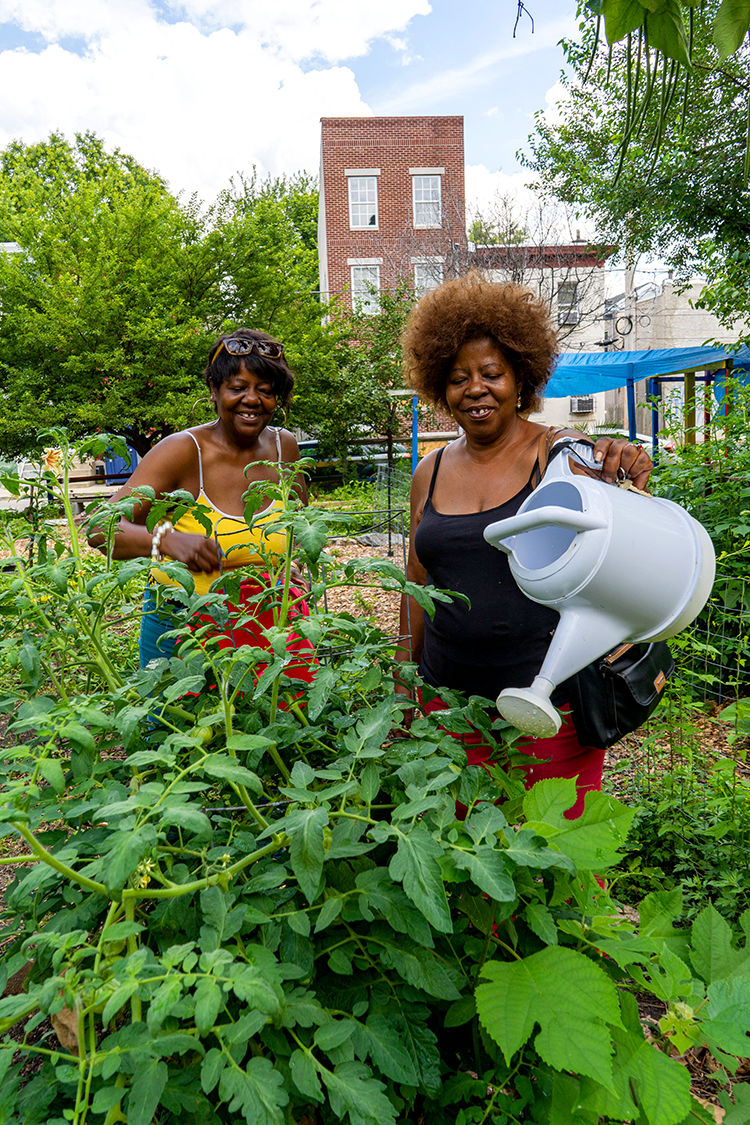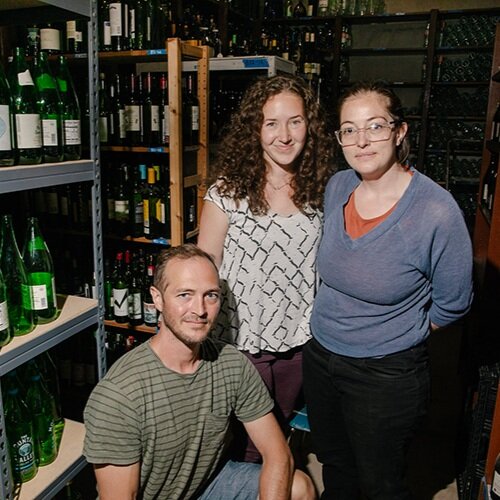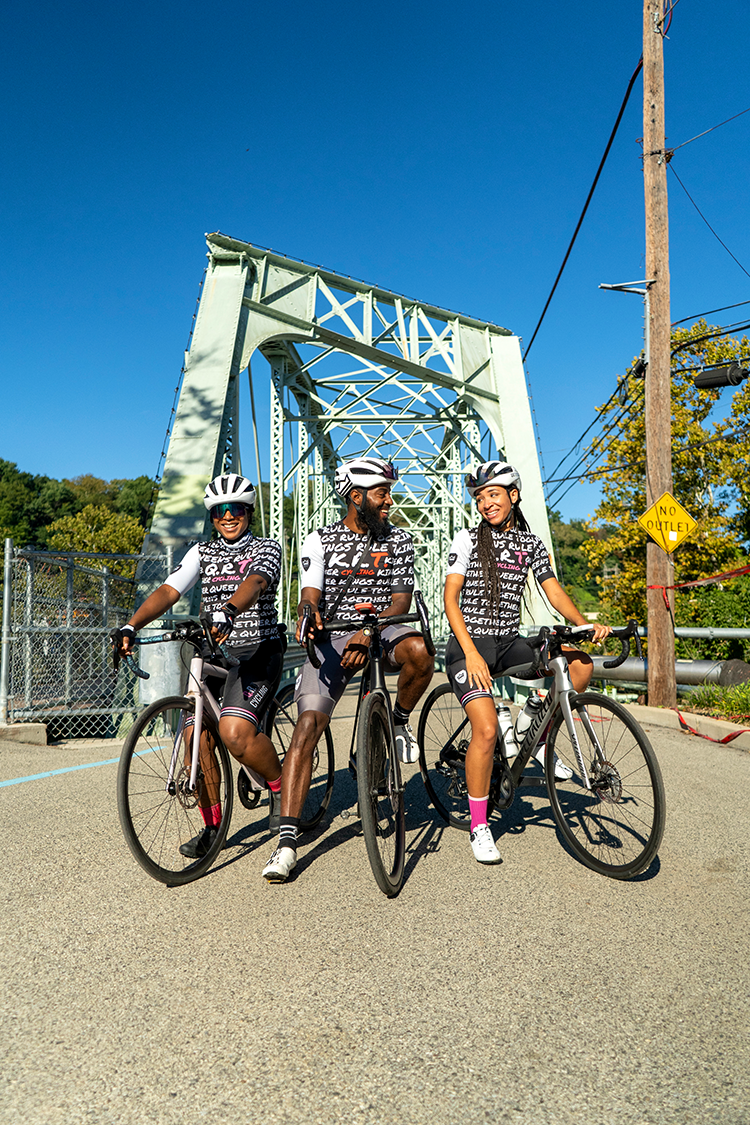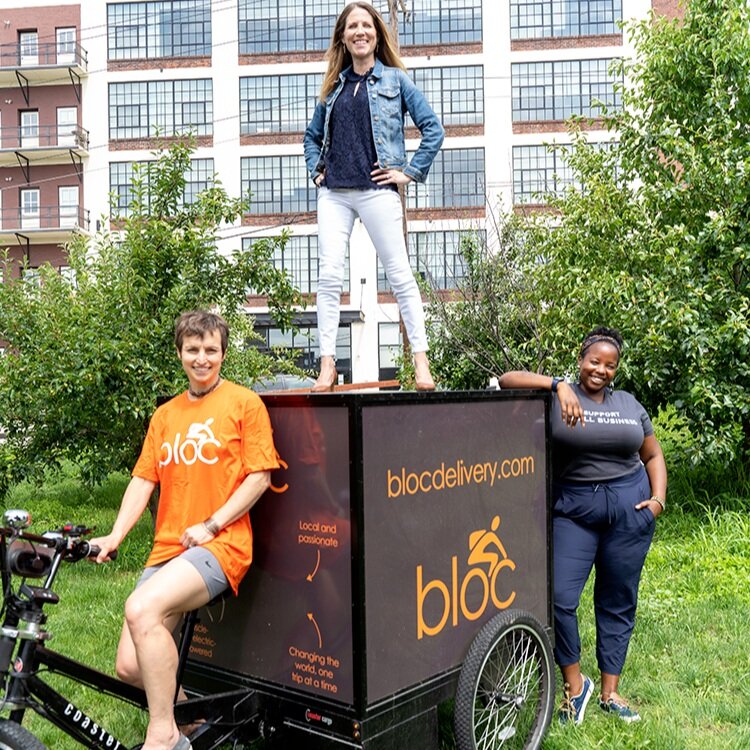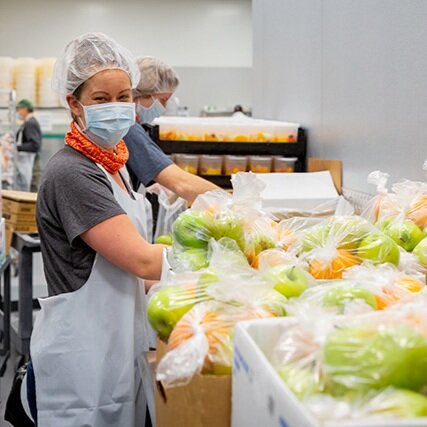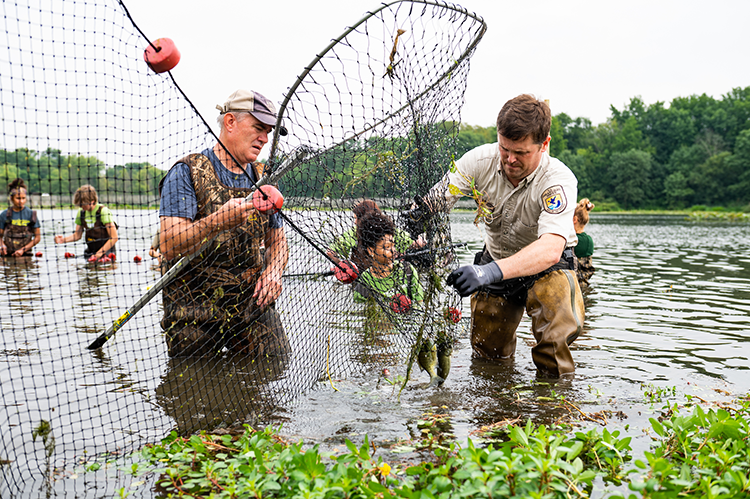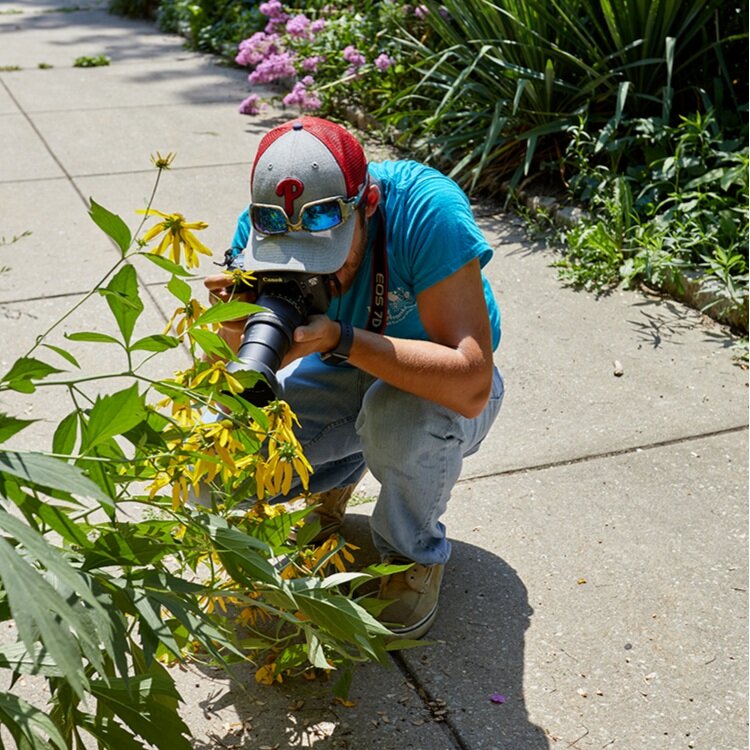On a small plot of land just on the edge of Southwest Philadelphia sits a yellow school bus. A year ago the gutted vehicle wouldn’t have warranted a second look.
But now the bus has been rehabilitated, with reinforced windows and flooring, and sits under a blue tarp to protect it from the rain. The surroundings have also been transformed and feature a budding, mulched garden encased by shipping pallet fencing. It’s clear that it is no ordinary school transport.
“I’ve never worked on anything like this before,” says Dominique London, owner of the lot and the soon-to-be finished “skoolie,” or renovated bus-turned-home.
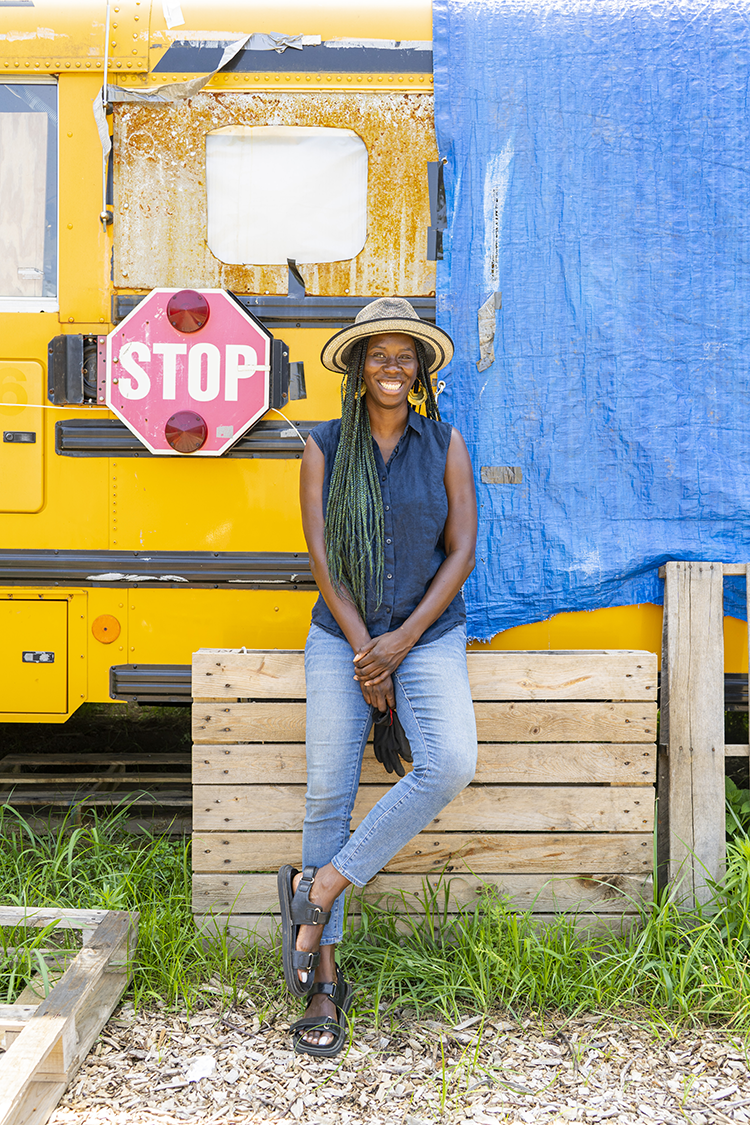
Just next door is the home that used to belong to her late grandmother, Pauline London. While the house was lost several years ago to the city via sheriff sale, London was able to fight to hold on to the land.
“It’s a very personal thing for me. My family grew up on this land,” she explains.
This project is not only saving London’s family land, it’s making it sustainable.
London, who holds a master’s degree in urban planning from Temple University, will utilize her new home as a means to travel as well as to live in autonomy. Free from a mortgage and utilities, London is able to look to alternative means of living.
She is currently in the process of installing a rainwater catchment system to maintain the plants in her garden. She’ll also add a composting toilet to ditch the sewage and septic system.
“It’s a very personal thing for me. My family grew up on this land.”
Dominique London, Southwest Philly resident
“It means a lot to be self-sufficient, grow my own food and just know what it feels like to have more control over my life,” says London.
One notable thing about London’s project is she’s not doing it alone: it’s a community affair.
On any given Saturday, you might catch a crowd of volunteers on the lot alongside her, planting trees, installing fencing or digging up weeds. They’re participants with the Philadelphia City Repair Project (PCRP), an organization that helps residents reclaim public space and offers gardening and planning aid.
In London’s case, it means organizing extra hands to help out.
Helping Philly residents like London become more self-sufficient is the goal of PCRP, says Executive Director Michael Frank, finding ways to connect residents with the land around them and use it to their benefit.
“It’s important to have alternative, more affordable types of living in Philadelphia,” says Frank. “We work with community groups, community organizations, but also just individuals that are looking to live a sustainable lifestyle.”
PCRP got its start in 2016, after Frank returned to the city from an internship with the City Repair Project in Portland, Oregon.
Looking to replicate the work he had done on the West Coast, Frank began a school garden at Robert E. Lamberton Elementary School in West Philadelphia. This became the launch pad for Philadelphia’s independently-run branch of the project.
Creative Director Mikhi Woods and ambassador of culture Sistah Mafalda have joined Frank to round out the organization.
The team of three and their host of volunteers is also supported by CultureWorks Greater Philadelphia through a fiscal sponsorship, which allows PCRP to access office space and other resources.
With approximately 40,000 abandoned lots and spaces spread across the city, it’s easy for residents to become disenchanted with their neighborhoods.
“I think that it definitely burdens the psyche of an area,” says Danicia Malone, director of programs and facilities at the Purdue University Black Cultural Center.
“A space where you can be outside working together, imagining together, is fantastic. Especially right now as we’re still coming through … the pandemic,” says Malone, who is currently a Ph.D. student at Temple University in its Geography and Urban Studies program. She stressed that taking control of these spaces as PCRP does can begin the process of reshaping the neighborhood.
“Guerilla gardening is a beautiful practice that can identify much more quickly, and with much more agility, problem areas in a neighborhood that the city just doesn’t have the advantage to do,” Malone says.
Uber Street Organic Co-op, a garden on North Uber Street in North Philadelphia is maintained by sisters and co-captains of the block Agnes Domocase and Willamae Laster.
“The joy that the garden gives me is that it’s something that makes the children happy, and it’s also something else for them to do. And it’s for the community,” says Domocase.
Domocase first began working on the space around 2000, when the elderly man who had previously maintained the garden passed away. She learned from a neighbor how to tend to all the plants before taking over the space and becoming the block captain in 2005. Her sister soon joined her as a block co-captain.
When Domocase lost her mother in 2013, she stepped away from the space and it became overgrown and unattended. Now having returned to her role, she’s found the help of PCRP to bring it back to its former glory. PCRP has helped to build benches and planters, donated plants and put up fencing.
Next, Domocase and Laster plan to meet with City Councilmember Darrell L. Clarke to find ways to fend off development.
Both the Uber Street garden and London’s skoolie were featured in this year’s third annual Philly Village Building Convergence. The convergence is PCRP’s annual community building event where volunteers can help out on all of the ongoing PCRP projects during the day and connect with others in their community at night.
For Frank, that’s ultimately what the group is all about.
“It’s been such a privilege and honor to have the opportunity to meet all these different groups and work with all these different people,” he says. “I think our communities are stronger when we’re working together.”


